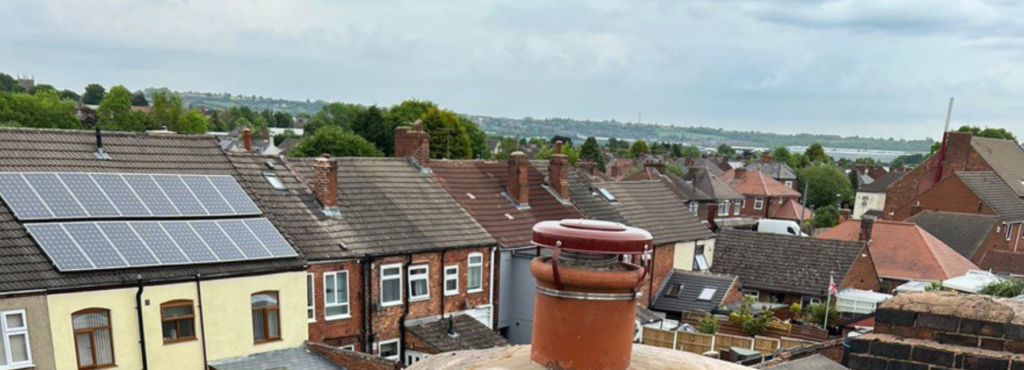Introduction: Fire resistance is critical for any roofing system, particularly for flat roofs common in commercial and residential buildings. Given the potentially devastating impact of a fire, enhancing your roof’s ability to withstand this threat is not just a building code compliance issue but a fundamental aspect of safety and prevention. This blog post explores various flat roofing materials known for their fire-resistant properties and provides insights on how to enhance the fire resistance of flat roofs.
The Importance of Fire Resistance in Flat Roofing
Flat roofs pose unique challenges when it comes to fire safety. Their horizontal layout allows fire more rapidly than pitched roofs. Moreover, the accessibility and usage of flat roofs often mean they are more likely to have equipment or installations that could pose fire risks (e.g., HVAC units, solar panels). Thus, choosing the right materials and employing proper installation and maintenance practices are key to improving fire safety.
Choosing Fire-Resistant Roofing Materials
When selecting roofing materials for their fire-resistant qualities, it’s essential to understand the material’s fire rating. Roofing materials are typically classified A, B, or C by testing organisations such as UL (Underwriters Laboratories), with Class A offering the highest resistance to fire originating from external sources. Here are some of the most effective fire-resistant roofing materials for flat roofs:
- Metal Roofing: Metal roofs are inherently fire-resistant and do not ignite when exposed to flames. Materials like aluminium, steel, and copper offer excellent fire resistance and durability. They are also lightweight, which helps reduce the load on the building’s structure.
- Clay and Concrete Tiles: Although more commonly used on sloped roofs, these materials can be adapted for flat or slightly pitched roofs. Both clay and concrete are non-combustible and provide superb fire resistance. Their significant weight, however, requires ensuring that the building structure can support them.
- Fiberglass-Based Asphalt Shingles: Fiberglass-based asphalt shingles can be a viable option for lower slope flat roofs. When installed with appropriate underlayment, these shingles are usually available with Class A fire ratings.
- Modified Bitumen and Built-up Roofs (BUR): Modified bitumen and BUR systems can meet Class A fire ratings by including fire-retardant chemicals during the manufacturing process or through the application of fire-resistant coatings.
- EPDM and TPO Single-Ply Membranes: While these popular flat roofing materials are not inherently fire-resistant, they can be treated with fire retardants and installed with fire-rated underlayments to enhance their resistance to fire.
Installation and Maintenance Tips to Enhance Fire Resistance
- Proper Installation: Ensure that all roofing materials are installed according to manufacturer specifications by professional roofing contractors. Incorrect installation can compromise the fire-resistant properties of roofing materials.
- Regular Inspections and Maintenance: Regularly inspect the roof for any signs of damage or wear, such as cracks or blisters, which could compromise its fire resistance. Maintenance should be performed promptly to fix these issues.
- Debris Management: Keep the roof clear of debris, such as leaves, twigs, and other flammable materials, which can pose a fire risk, especially during dry seasons.
- Fire Breaks: In larger roof areas, consider installing fire breaks. These can help to prevent the spread of fire across the roof surface.
- Safe Installation of Equipment: Any installations on the roof, such as satellite dishes or HVAC units, should be mounted safely and in compliance with fire safety guidelines to prevent electrical fires or overheating.
Conclusion: Enhancing the fire resistance of your flat roof is a critical safety measure that protects not just your property but potentially lives as well. By selecting the appropriate fire-resistant materials and adhering to best practices in installation and maintenance, you can significantly improve the fire safety of your building. Always consult a professional roofing contractor who can provide tailored solutions based on your needs and local building codes. These steps ensure your roof is as safe, secure, and fire-resistant as possible.
Call us on: 01246 948 690
Click here to find out more about Bolsover Roofing Repairs
Click here to complete our contact form and see how we can help with your roofing needs.

